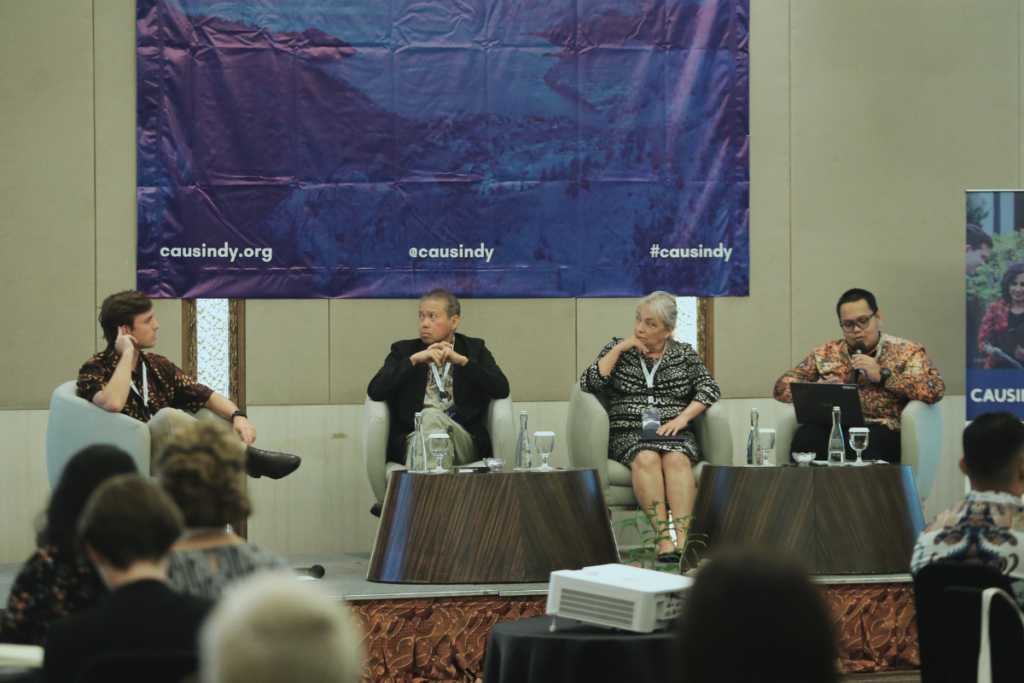The economics of sustainable tourism were front and centre during the second panel session at the 2023 conference.
The panel discussion explored the range of possible definitions of sustainable tourism, how the Indonesian government can place sustainable tourism in long-term planning as a facilitator of economic growth, and how to enhance the competitiveness and sustainability of ecotourism in Indonesia.
Speaking on the panel were the following three experts:
- Developmental and environmental economist Professor Budy Resosudarmo
- Academic and tourism expert Dr Diane Lee
- Lecturer and researcher Dr Fajar Hirawan
Speakers talked to both the opportunities and the challenges that exist when examining sustainable tourism from an economic perspective.
Principles of ecotourism
Professor Budy outlined an economics framework he suggested could be implemented within the realm of ecotourism, a framework that prioritises several key principles to promote intergenerational equity.
“Implementation of intergenerational equity is difficult because you first need to know the needs of future generations,” he said.
“You have to imagine the needs of the future generation [by working] backward, and utilise resources to guarantee that they will receive the capital that we transfer to them.”
A practical, three-pronged approach – focusing on economic growth, people welfare and the environment – is needed.
“When you think about ecotourism, think about these principles,” said Professor Budy.
Economics of conservation
Dianne brought her background in academia and teaching to the session by defining what it is that we talk about when discussing sustainable development – in the wording of the 1987 Brundtland Report, “development that meets the needs of the present without compromising the ability of future generations to meet their own needs”.
But, she claimed: “the operationalisation of sustainable tourism remains an issue”.
“One of the bottom lines to sustainability is… values and discussion with [stakeholders in] the community,” she said, adding that those discussions will look very different in different locations.
Dianne provided an example of environmental conservation being supported by the revenue generated from tourism, in the form of ecotourism efforts on Rottnest Island / Wadjemup in Western Australia.
Structural changes
Thirdly, Dr Fajar, a CAUSINDY alumni from the first ever conference in 2013, issued a breakdown of the Indonesian context, exploring policy considerations and possible future frameworks to promote sustainable tourism through an economics lens.
Fajar explained that to achieve both economic growth and social welfare, there are at least three elements to consider in policymaking:
- Structural transformation
- Population structure
- Digitalisation
He stated that, although six out of 10 youths are familiar with the issues of climate change, everyday actions taken by individuals are not enough to reduce carbon production.
Owing to a lack of interest in sustainable tourism among youth, it is important to have the appropriate regulatory and institutional frameworks that highlight sustainability.
The way forward
In summary, Fajar suggested the following trifold approach:
- Increasing cooperation in tourism infrastructure development
- Promoting cooperation in human capacity building
- Strengthening cooperation in sustainable tourism
By holding these tenets close to heart, he said, sustainable economics in a tourism concept can be more than possible – but likely.
Click here for a summary of highlights from all sessions on day one of the conference.

